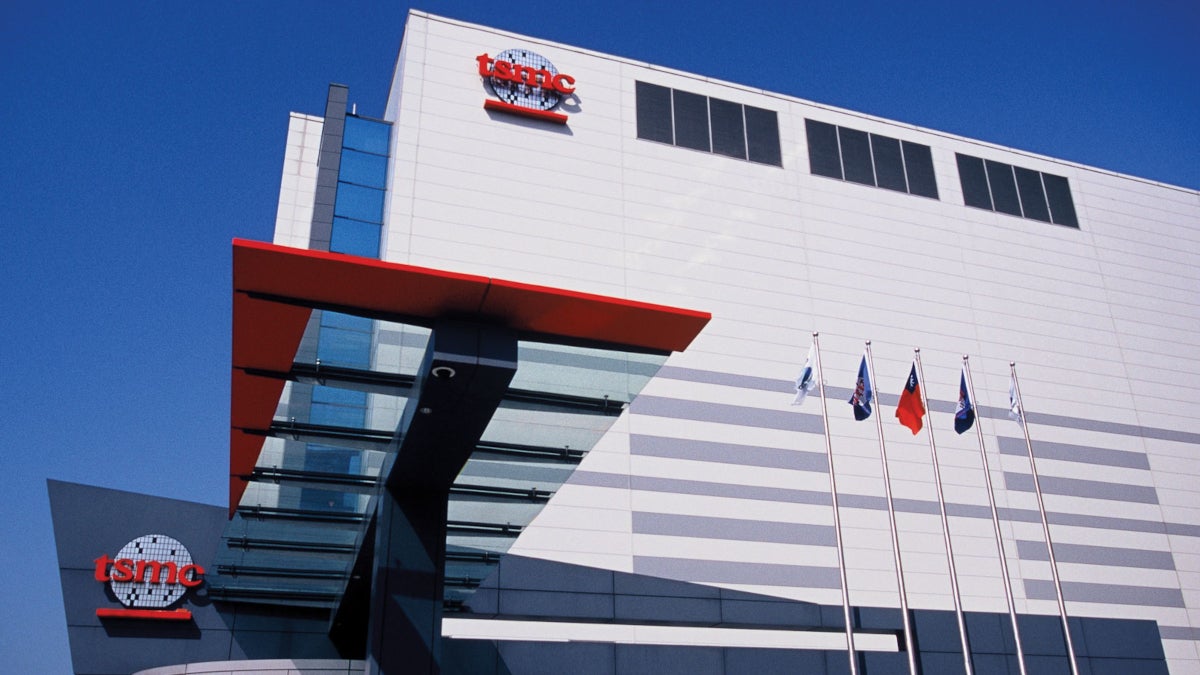TSMC shocker: foundry cuts its orders to suppliers by up to 50% on lower chip demand fears

It might not be absurd to call Taiwan Semiconductor Manufacturing Company Ltd. (TSMC) the most important company in tech. That's because the foundry takes the chip designs created by companies like Apple, Qualcomm, Nvidia, MediaTek, Intel, and others and turns them into the chips that tech devices can't work without. Apple is TSMC's largest customer and is responsible for 25% of the foundry's revenue.
According to United Daily News (UDN), TSMC has been cutting its orders from suppliers by as much as 50%. These companies make up TSMC's supply chain and ship it things like silicon wafers that are used to produce chips. Because of the foundry's position in the tech world, such a report is shocking and stunning and confirms other reports that say demand for chips is declining. UDN's sources say that the drop in orders to TSMC's supply chain comes amid a spending cut put in place by the company.

The A16 Bionic is made using TSMC's enhanced 5nm process that some call 4nm
TSMC expects its customers to continue to work down existing inventories of chips with the slowdown peaking during the first quarter of next year. The company did say that it is experiencing strong demand for 3nm chips. CEO Dr. C.C. Wei says that TSMC has received double the number of tape-outs for its 3nm process node than it received for any earlier technology. A tape-out is a final design made by a TSMC customer that is submitted to the foundry to be manufactured.
In simple terms, the lower the process node (for example, 3nm is lower than 5nm), the smaller are the transistors used in the chip manufacturing process. That allows more transistors to be used inside a chip and that is important. Usually the larger the number of transistors employed inside a chip, the more powerful and energy-efficient a chip is.
For example, 2018's iPhone X was powered by the A11 Bionic chipset built by TSMC using its 10nm process node. That chip contained 4.3 billion transistors. The 2022 iPhone 14 Pro models are powered by the A16 Bionic produced by TSMC using an enhanced 5nm process node that some call 4nm. The chip carries nearly 16 billion transistors.
TSMC says that the weakness in demand that it is experiencing started last quarter, is running into the current quarter, and will continue during the first quarter of 2023. If the following data is true, it reveals how deep a drop TSMC has seen in demand, even for cutting-edge 3nm components. UDN notes that the average monthly output for 3nm production was expected to be 44,000 wafers. That has been reduced by a whopping 34,000 wafers or 77% to 10,000 wafers a month.
Reduced orders from Apple and Intel reportedly are the major contributors to the drop in 3nm production. But this should change later next year when TSMC starts producing the A17 Bionic for the iPhone 15 Pro and iPhone 15 Ultra. Both of these models should be powered by the 3nm A17 Bionic while the iPhone 15 and iPhone 15 Plus will feature this year's A16 Bionic.
Follow us on Google News













Things that are NOT allowed:
To help keep our community safe and free from spam, we apply temporary limits to newly created accounts: